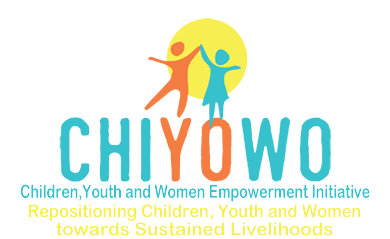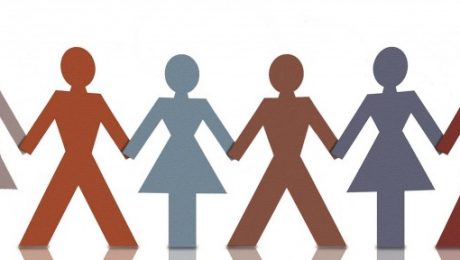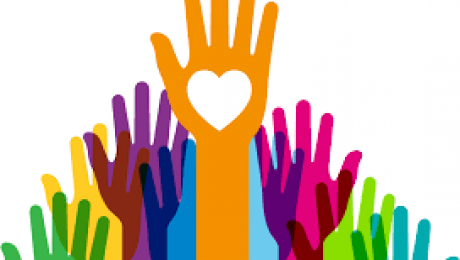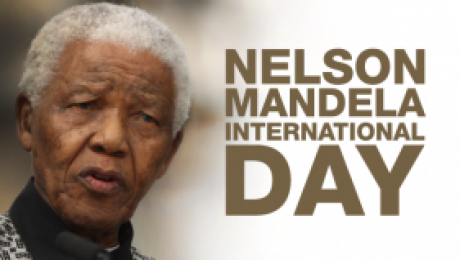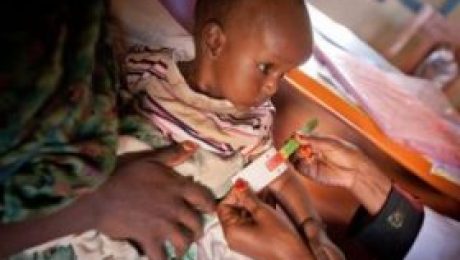Volunteering Overseas – How Does It Change You?
Volunteering Overseas – How Does It Change You?
Tokunbo Ifaturoti
There is one common result for everyone who chooses to volunteer overseas. Their view of the world, what is important in it and what needs to be done is profoundly changed. Here are a few other ways in which you will change by becoming a volunteer in a foreign country.
- You discover sides to yourself you never knew were there. Your strengths in particular shine through and you realize you are capable of caring deeply for strangers and empathizing with their conditions.
- You understand deeply what is meant by the phrases “working lunch” and “a full day’s work”. You wake up earlier than you have ever done, help to complete tasks while you grab a bite and often work into the late hours of night assisting where it is needed.
- You know full well the restorative value of sleep. It is not just the tasks but also the new experiences that draw on your physical and mental energy. A strange room and a strange bed are of little consequence when sleep calls at the end of a day of sharing yourself.
- You place a new meaning on the word “stranger’. You easily strike up conversations on all manner of topics with people you have never met before. A ride on public transportation becomes a chance to share cultures and exchange views on world events.
- You realize long-distance relationships really can work. The friendships you make can survive the distance and the different cultures that separate you. Home becomes more of a feeling and less of place as you return year after year to continue you good work.
- You acknowledge your place in the global village. The ways in which we impact our “neighbours” from the great distances of own home countries becomes abundantly clear. From the brands you now choose (and refuse) to support to more conscious treatment of the environment, you take others into consideration.
Take a moment to share in our forum how being a volunteer has changed you.
- Published in BLOG
The Truth About Family Planning In Times Of Crisis
The Truth About Family Planning In Times Of Crisis
Tokunbo Ifaturoti
Introduction
Natural disasters, war and persecution each have a devastating effect on the general well-being of persons (men, women, children, and the elder) who have to endure them. These persons are left feeling as if they have lost the power to make any decisions about even the most fundamental aspects of their lives. Their home, work, school and social activities have all been disrupted and the routines that make life predictable, safe and reassuring have all been removed.
Benefits Of The Availability Of Family Planning For Women
One area in which women are able to regain some sense of control is in the use of contraceptives. These give women the opportunity to
- manage their reproductive health
- better focus on the children they already have
- plan and better care for the children they will have in the future
- give greater assistance to their burdened families
- achieve increased stability in their lives (to counter the instability brought on by crises)
- take on education and entrepreneurial opportunities
Why Help Is Needed
Access to safe, voluntary family planning is one of the human rights that has a profound and direct impact on women. According to the United Nations Population Fund (UNFPA) “Family planning is central to gender equality and women’s empowerment, and it is a key factor in reducing poverty.” These functions of family planning become even important in times of crisis.
Women and children have been identified as being at the greatest risk when there is a catastrophic event. Outside of not wanting to increase their family size with their partner, there are many other reason for contraceptives being vitally important to women. Among these, is the fact that women of child-bearing age are in very real danger of sexual exploitation and sexual violence during times of crisis.
The UNFPA further points out that the 69 poorest countries in the world contain most of the roughly 225 million women who do not wish to become pregnant but “are not using safe and effective family planning methods” due to the lack of
- community support
- support from their husbands or boyfriends
- readily accessible information
- family planning services
Risks Brought On By The Lack Of Family Planning Options
Without access to family planning women are exposed to
- lower levels of prenatal and postnatal care for themselves and their unborn child
- exposure to sexually transmitted diseases
- pregnancy related complications and death
It must be noted that many of these women are already facing issues of poor health due to the conditions brought on by the crises they are living in.
Conclusion
All types of contraceptives have their place among these women, who welcome not only the access to the family planning methods, but the variety of methods presented. From condoms, to birth control pill to IUDs, giving women the opportunity to take advantage of family planning is vital to sustaining them through the crisis situations they are in.
Coupled with counselling and supportive medical aid, it provides a new lease on life and a glimpse at a brighter future for women and their families caught up in humanitarian crises.
- Published in ARTICLES
The Power Of Connecting – Examining The Value Of Storytelling To Charities
The Power Of Connecting – Examining The Value Of Storytelling To Charities
Tokunbo Ifaturoti
Introduction
They say storytelling is an art, but the most powerful stories are perhaps those told simply in the words of those who live through them.
Charity workers and their beneficiaries have some of the most compelling stories you will ever read or hear. The problem is that most likely you won’t because providing aid is so involved and consuming that there is little time or energy left to jot done the life changing minor miracles experienced or the simple fulfillment it brings.
Similarly, person who benefit from aid are caught up in the act of living, of making it through another day and often cannot spare the time or energy to relate their stories of renewed hope and over-abounding gratitude.
Storytelling via Social Media
The Small Charities Coalition provides its members with guidance on the use of social media as a means of getting their message and their need out to as many people as possible. Increasingly, that is exactly what charities are beginning to do.
Most of us already use our social media accounts to remain in touch and share the happenings of our lives with “friends” near and far. It therefore seems like a natural progression and smart decision to allow this networking platform to work for the benefit of those the charities are set up to help.
By using social media to the convey stories of need and the stories of success that our charity has experienced, we are reaching an audience that we otherwise could not have hoped to reach. Ensuring that these stories powerfully relate the truths of our situation and the situations of those we serve is paramount to increasing the support we receive. Why?
The Truth Is The Most Compelling Story We Can Tell
The value of the services we provide and the urgent need for others to get on board and invest in us is best expressed by simply using storytelling to open a window into our operations. As we share the true stories of how we impact the lives of those most in need and how they in turn impact us, we are allowing persons who wish to help to see how that help can be realised and the value it represents to beneficiaries.
The possibilities presented by the use of social media are not just extended to the charity and its beneficiaries. Volunteers and donors (past, current and future) can share in their own words what they have gained by becoming involved.
Conclusion
Sharing these stories is of extreme importance because stories inspire people to get involved and to give a lending hand whether literally or figuratively through donations. Once we have received the requisite permissions to use photos, names and statements, we can share the uniqueness of our experiences with the wide audience social media provides.
The very nature of social media puts the sharing of stories into perpetual motion. This is a fact charities must take advantage of by encouraging family members, friends, co-workers, community members and supporters to join in.
- Published in ARTICLES
Teen Girls The Focus Of World Population Day 2016
Teen Girls The Focus Of World Population Day 2016
Tokunbo Ifaturoti
On July 11, 2016 the United Nations Population Fund UNPF will ask the world to pause and contemplate the potential that lies in “Investing in Teenage Girls”. The year’s theme seems a natural progression from World Population Day 2015 observations which focussed on “Vulnerable Populations in Emergencies”.
The UNPF’s introduction of World Population Day 2016 highlights the challenges faced by a large percentage of teenage girls worldwide. Among the points it is asking us to consider are that within their communities, these young women often
- have difficulty accessing “basic information about their health, human rights and reproductive rights”
- are thought to be ready for marriage and motherhood
- are involuntarily kept out of school
- are “vulnerable to illness, injury and exploitation”
For all the teenage girls around the world who face these issues and are left without a voice, we must determine to become their voices.
Making a change for these girls starts with understanding the subtleties of the communities in which they live. We must aim to reach at-risk teenage girls with programmes to impart the requisite knowledge, skills and power they need to take greater control of their lives.
This, however, is not enough. We must also aim to reach the members of their communities and enlighten them of the benefits for all when girls are given access to a solid education, are protected from exploitation and are given the chance to take charge of their sexual and reproductive health.
In greatest need of our active input are those girls who are part of the tens of millions of displaced people. Along with the physical and emotional trauma of the circumstances that led to their displacement, they must now try to exist in conditions where their privacy and safety are often comprised.
Speaking out on behalf of disadvantaged teenage girls and supporting programmes that seek to empower them are just two ways we can help from anywhere in the world. If enough people get on-board and demand positive changes for these girls, then their voices will be heard through ours,
- Published in BLOG
Protecting Children From The Violence Related To Social Norms
Protecting Children From The Violence Related To Social Norms
Tokunbo Ifaturoti
A recent UNICEF analysis of available data from 62 countries revealed the following worrying statistics.
- Of children between the ages of 2 and 14, 80% (or 4 out of every 5) have had to endure violent means of discipline.
- Within 23 countries, most of which are affected by conflict, 1 in 5 children have been subjected to corporal punishment in its most severe forms.
These types of correction are part of the social norms of many cultures and are generally viewed as accepted behaviour. As such, they prevail and are perpetuated, with harsh punishments being meted out to children both at home and at school.
Identification of what drives these norms, making violence against children an accepted mode of disciplining them, is crucial to change. Understanding how to approach the protection of children from unnecessary acts of violence will require an in-depth look at the dynamics of the societies in which they live. Once such careful research is conducted and analysed, proactive interventions can be developed with the aim to change the mind-set of adults and begin the formulation of new social norms.
Organizations that offer aid are in the unique position of being able to reach and influence communities in a way that other entities cannot. They must be given the resources to design and implement preventive strategies that will assure the protection of children along with the development of their communities.
The reduction of violence toward children must be made a priority and those in the best position to help must be given priority support as well.
- Published in BLOG
Practical Ways You Can Support A Charity
Practical Ways You Can Support A Charity
Tokunbo Ifaturoti
You know the need is out there and you want to help in a meaningful way. But how? There are a variety of ways in which individuals can support charities aside from donating cash. Yes, the cash is very important and the lack of it has stalled many charities in their efforts to help.
But you may be unable to make monetary donations, are weary of how your money will be spent or just want to do something more involved than write a cheque. If so, here are some great ways to support a charity.
- Make Other Donations – Find out what materials the charity needs aside from cash. Often times you may already have it or can easily access it. If they have drop-off points then take the material to them. Requesting that they collect from you is something they may agree to but it will cost them extra to do it. Remember, for charities and their beneficiaries – every dollar counts.
- Spread the word – Tell your social media network about the charity’s deeds and its needs. Ask others to pass it along. Mention it to your neighbours, at work and at religious gatherings. Start or sign online petitions in favour of the causes of charities and charitable organizations which you support. When you think about it – your voice is the charity’s the best advertisement.
- Volunteer your time and skills – You don’t have to be particularly good at something to help get it done. Charities often need help with physical labour, mentorship programs and record keeping.
- Give Money – Helping the plight of those in need will invariably have costs attached for which only monetary donations will suffice. If you have lingering doubts then seek clarification. Ask specifically what the funds are used for. Many charities will gladly tell you because they need and respect your help.
So don’t be afraid to volunteer, the good turn you do could mean a lifetime of opportunity for someone else.
- Published in BLOG
Celebrate Youth Empowerment On World Youth Skills Day
Celebrate Youth Empowerment On World Youth Skills Day
Tokunbo Ifaturoti
The empowerment offered by skills training is embodied in the old adage: “Give a man a fish and you feed him for a day. Teach him to fish and you feed him for life.”
This is the basic ideology that seems to exist behind the United Nations (UN) adoption of World Youth Skills Day (WYSD). July 15 is designated for annual observance of the value of giving the world’s growing youth population access to training in marketable and life-changing skills.
This year marks only the second year since the day was officially added to the UN’s calendar of International Days. Since its inauguration, however, WYSD has generated a great deal of interest among person who see the need for a push in the development of skills training programmes as a way to reach and teach youth, especially in areas suffering from conflict and in poverty stricken areas.
The United Nations Educational, Scientific and Cultural Organization (UNESCO) is encouraging persons around the world to use the power of social media to spread the word about the aims, objectives, merits and activities of WYSD. You may do this in part by sharing the hashtag #WYSD.
WYSD is built around two of the Sustainable Development Goals (SDGs) for 2030, namely
- Goal 4: Quality Education – Ensure inclusive and equitable quality education and promote lifelong learning opportunities for all.
- Goal 8: Decent Work and Economic Growth – Promote sustained, inclusive and sustainable economic growth, full and productive employment and decent work for all.
“Skills development reduces poverty and better equips young people to find decent jobs. It triggers a process of empowerment and self-esteem that benefits everyone.” — UN Secretary-General, Ban Ki-moon
- Published in BLOG
Give 67 Minutes Of Your Time On Nelson Mandela International Day
Give 67 Minutes Of Your Time On Nelson Mandela International Day
Tokunbo Ifaturoti
When? – July 18, 2016, Nelson Mandela’s birthday. This will mark the 7th year of its observance, the day having been inaugurated in 2010.
Why 67? – The number represents the years Nelson Mandela spent devoting his life to public service. So in essence, you are being urged to recognize his contributions by contributing one minute of your time to the service of others to match every year he contributed.
Who can get involved? – You and those you spread the word to. The basic idea behind Nelson Mandela International Day is that everyone can make a difference through even small unheralded actions.
What can you do? – Anything and everything. From the smallest gesture to large full-scale projects. The year’s themes were announced at its official launch at the Dr Mathole Motshekga Primary School in Tembisa. They include the four key areas of
- literacy and education
- food security
- shelter and infrastructure
- the environment
That allows you a wide choice of how to plan your project to stay in keeping with the theme of the day. However, if you can’t match the theme then don’t. Just give the 67 minutes in whichever way you can.
Want to reach others? – Hashtags associated with Nelson Mandela International Day are #time2serve and #mandeladay. You can register the action you plan on taking with the Nelson Mandela Foundation and take a look at some of the other inspiring actions that persons have committed themselves to undertaking.
What to remember? – “When a man has done what he considers to be his duty to his people and his country, he can rest in peace. I believe I have made that effort and that is, therefore, why I will sleep for the eternity.” – Nelson Mandela
- Published in BLOG
A Proactive Approach To Reaching And Treating Children Suffering From Malnutrition
Needed Urgently
A Proactive Approach To Reaching And Treating Children Suffering From Malnutrition
Tokunbo Ifaturoti
The World Health Organization (WHO) provides the following key facts on child mortality.
- 9 million children under the age of 5 died in 2015.
- More than half of these early child deaths are due to conditions that could be prevented or treated with access to simple, affordable interventions.
- About 45% of all child deaths are linked to malnutrition.
- Children in sub-Saharan Africa are more than 14 times more likely to die before the age of 5 than children in developed regions.
These, surely, are alarming figures and the WHO’s subsequent statement citing “substantial global progress … in reducing child deaths since 1990” provides some comfort but does not erase the need for urgent intervention on the behalf of the world’s most vulnerable citizens.
The progress of which the WHO speaks, is a decline of approximately 53% in the number of under-5 deaths worldwide between 1990 and 2015. In real numbers, it represents 19,000 children whose lives have been saved, daily. It is reason for celebration, yes. But it is also reason for further interventions to be put in place – to save the lives of the other 16,000 children in danger of dying every single day.
Tackling malnutrition is one way to do this but there are obstacle in the way. Among these obstacles are
- conflict in regions where the children live
- limited means of transportation
- too few facilities and medical personnel that can provide the type of assistance needed
- cost to families to reach the help their children need to live
Treatment and food need to be brought to the children instead of the other way around as currently exists in many places.
Charities have the ability to do this and should be made to play a greater role in this effort. Charities integrate with communities at the ground level and have earned the trust of those they serve. Giving them the tools and resources to train and treat can literally be the difference between life and death for thousands of children.
- Published in BLOG
